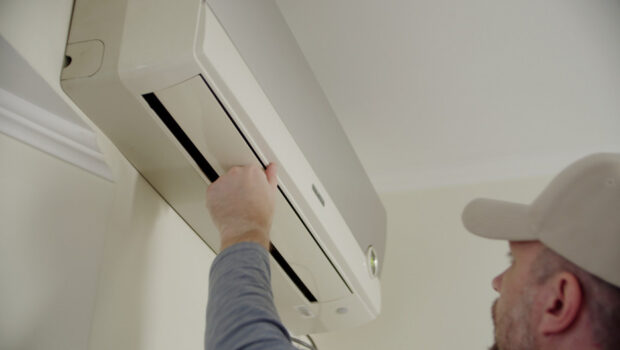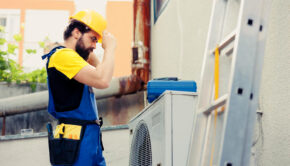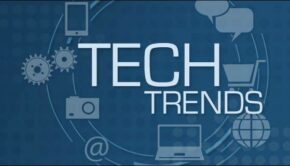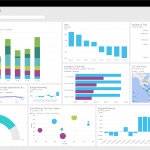HVAC Tech Trends in 2025 Every Homeowner Should Watch
In recent years, the HVAC industry has seen a substantial advancement in technology, revolutionizing how homeowners manage their indoor climates. With 2025 on the horizon, understanding the latest trends and innovations in HVAC technology is crucial for homeowners looking to enhance energy efficiency, sustainability, and comfort. This article explores some key HVAC tech trends for 2025 that every homeowner should watch.
Energy Efficiency and Smart Technology
Energy efficiency is at the forefront of HVAC technology advancements. Modern systems are integrating with smart technology, allowing homeowners to monitor and control their heating and cooling systems remotely. This leap in technology not only improves energy usage but also significantly reduces costs.
According to the U.S. Department of Energy, a large majority of homes, approximately three-fourths, in the United States are equipped with air conditioning systems. As this trend continues, the incorporation of smart thermostats and automated controls becomes crucial for optimizing home energy use. These systems can learn from the homeowner’s habits, adjust temperatures automatically, and provide insights for energy-saving opportunities.
Homeowners are now empowered more than ever to maintain a comfortable environment while being energy-conscious. By utilizing smart devices and integrated systems, temperatures can be adjusted from anywhere, optimizing comfort and efficiency. This capability is particularly beneficial for those constantly on the go, ensuring their HVAC system operates efficiently when it’s needed most.
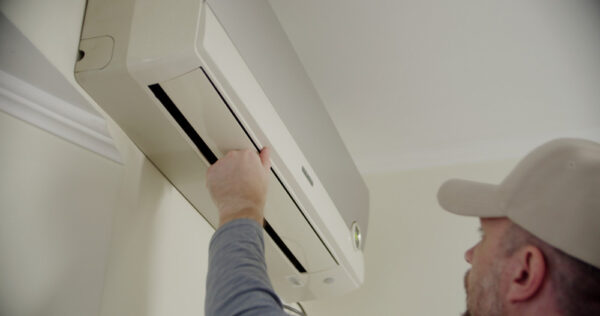
Sustainability and Environmental Impact
Sustainability and reducing environmental impact continue to be significant drivers in HVAC technology development. Newer systems focus heavily on minimizing carbon footprints by using eco-friendly refrigerants and renewable energy sources. As environmental regulations become stricter, the demand for sustainable HVAC solutions is expected to rise.
The HVAC industry is also seeing a shift towards utilizing solar energy to power systems. This not only reduces reliance on traditional power sources but also significantly decreases energy bills for homeowners. Such environmentally-friendly options are becoming increasingly viable as technology advances and costs decrease.
Additionally, manufacturers are focusing on the lifecycle of HVAC products to ensure minimal waste. Recyclable materials and more durable system designs contribute to less frequent replacements and reduced waste. Homeowners interested in sustainable solutions find this approach appealing as it aligns with their environmental values and financial goals.
Maintenance and Longevity
Regular maintenance is key to ensuring the longevity of HVAC systems, a fact highlighted by many experts in the field. As stated by experts at This Old House, an HVAC system can function effectively for up to 15-20 years if it is well-maintained. This emphasizes the importance of routine check-ups and technological advancements that make maintenance easier and more effective.
Incorporating IoT (Internet of Things) technology into HVAC systems allows homeowners to predict when maintenance is due. Smart diagnostics can automatically alert users to potential issues before they become significant problems. This predictive maintenance capability not only extends system life but also minimizes unexpected repair costs.
Additionally, experts at Forbes recommend servicing HVAC systems twice a year to maintain optimal performance. This biannual servicing is increasingly supported by technology that helps remind homeowners of upcoming service dates and facilitates easy scheduling with professionals. With regular maintenance, systems not only last longer but also maintain peak performance, ensuring comfort year-round.
Improved Air Quality Systems
The shift towards better indoor air quality (IAQ) is another notable trend in HVAC technology. Advanced filtration systems are now part of many new HVAC installations, promising cleaner, healthier air for homes. These improvements have an immediate positive impact on occupants, especially those with allergies or respiratory conditions.
HEPA filters, UV lights, and air purification systems are increasingly being integrated into home HVAC systems. These technologies work together to eliminate dust, allergens, bacteria, and other pollutants from the air. As the importance of air quality becomes more recognized, homeowners are more inclined to invest in advanced IAQ systems.
Furthermore, as awareness of air quality’s impact on health grows, demand for these technology-driven solutions is expected to increase. Incorporating smart sensors to monitor air quality in real time can also provide data-driven insights that help maintain a healthier living environment. Ensuring high indoor air quality not only protects health but also enhances overall home comfort.
As the year 2025 approaches, HVAC technology keeps evolving, promising homeowners more efficient, sustainable, and health-conscious living environments. From smart systems that enhance energy efficiency to technologies fostering better air quality, the advancements are vast and varied. Staying informed about these trends is essential for any homeowner looking to make the most of their HVAC systems, ensuring optimal performance and comfort in the years to come.

